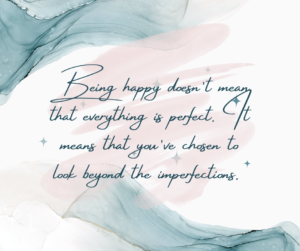What is happiness?
It’s International Day of Happiness but what does that mean? Are you happy? Is it possible to be happy all the time? Can we force happiness? How do we know when we’re truly happy? Is superficial happiness good enough?
Having suffered from severe depression I’m well versed with measuring or rating each symptom depending on how serious it feels or how often you feel like that over a given period of time. So, recovery is measured by a lack of symptoms but a lack of depression does not mean you are happy.
Happiness can be thought of as an emotion, most people can say at any given moment whether they are happy or not. But being happy overall is slightly different. Words such as content or satisfied may be more important to consider.
So, how do we measure happiness?
Positive Psychology researchers use 3 measures:
- Positive affect (mood and emotions)
- Negative affect
- Satisfaction with life

As with measuring symptoms of a mental illness, so, we can subjectively measure positive and negative mood and emotions. The Positive and Negative Affect Scale is a good example of how we can measure our mood and emotions. It can be used in the moment or over there past week.
Measuring our satisfaction with life is very interesting and full of variables. Things may include:
- Have you achieved goals?
- Do you have friends? Do you measure strength and depth of friendship or number of friends?
- Can you trust the people who influence your life to have your happiness as a priority?
- Does money factor? For some people this would be quantity, for others, having enough would be an important factor.
- Have you had children? Are they happy? Do they need to be achieving to feel you’ve achieved?
- How healthy are you? Have you recovered from an illness? Do you manage chronic illnesses well? What impact does illness have on your overall life?
- How are the people you care about? Are they happy?
- What personality traits are important? Are you kind, generous and warm-hearted? Are assertiveness, ambition and gregariousness important characteristics? Is it important that other people notice these characteristics in you?
- Is a lack of greed or selfishness more important than positive characteristics?
- Is it ok to put yourself first? If so, how much? How often?
- Do you have enough time with the people you like, doing the things you enjoy?
- When things aren’t going so well, do you feel able to change it?
- How in control of your life do you feel? Do you have self-belief?
- Does a belief in a higher power impact you positively or negatively?
- How much importance do you place on what other people think of you?
- Is your work life balance how you want it?
- Is what you do worthwhile?
- Are little things more important than the big things? Or vice versa?
Different people will leave different levels of importance on each of these and may consider other things play a bigger part in general happiness and well-being.
It is perfectly possible to be satisfied and content, even if things are not objectively “going well” as our higher functioning is able to see coping with adversity as a positive.
The government considered happiness so important in 2010 they asked the office of national statistics to survey the country’s happiness. Discussing how the survey would work, they found happiness was intangible but well-being is more easily measured.
They asked 4 questions:
- Overall, how satisfied are you with your life nowadays?
- Overall, to what extent do you feel the things you do in your life are worthwhile?
- Overall, how happy did you feel yesterday?
- Overall, how anxious did you feel yesterday?
Recent findings (up to Sept 2016) include:
- Life satisfaction, worthwhile and happiness have been steadily increasing since 2012 to October 2014, since then, they’ve plateaued.
- Anxiety was steadily decreasing to October 2014, since then it has been increasing.
Should we strive for happiness?

In my experience, I think this quote puts it perfectly. Striving for something intangible is fruitless, you will never know when you’ve achieved it. This does not mean, sit around doing nothing and happiness will arrive. Knowing what makes you happy is important, striving to achieve goals and thinking and behaving positively will all help.
I also believe we need to have times of unhappiness in order to recognise and appreciate the times of happiness. I do not strive to be unhappy, angry, anxious or frustrated but in experiencing these things, I enjoy the relief, joy and happiness all the more having been through tougher times.




